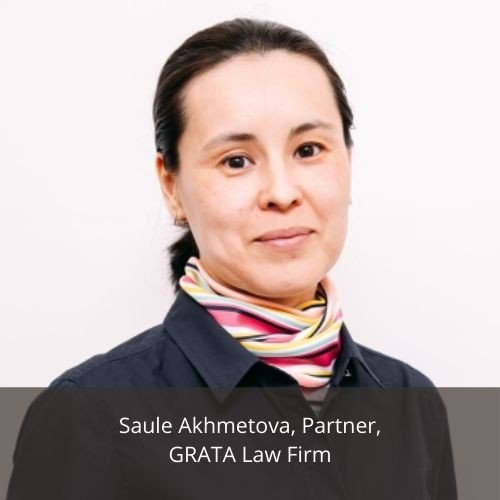Presidential Decree No. 229 in Kazakhstan sparks call for amendment
20 October 2020

Stakeholders met at a roundtable meeting earlier this year at Bolotov & Partners in Almaty to discuss Presidential Decree No. 229, signed by President Kassym-Jomart Tokayev late last year.
In attendance were representatives of the country’s Justice Department, the National Chamber of Commerce, local and international law firms, Procter & Gamble, Samsung, Toyota, Hyundai and several other brand owners. The meeting resulted in a letter sent to the presidential administration requesting an amendment of the decree.
According to the decree, all central executive bodies and local governmental bodies should stop conducting administrative inspections or raid actions in connection with visiting small businesses. Hence, justice authorities and the anti-monopoly authority cannot undertake inspections in small businesses.

These small businesses are those whose average annual number of employees is less than 100; they also have an average annual income of 300,000 MCI. (The MCI is a monthly calculation index used to calculate salaries, pensions and other social payments in Kazakhstan, where the inflation rate hovers around 7 percent. In April 2020, 1 MCI was valued at KT2,778, about US$6.50. 300,000 MCI are currently worth about US$1.95 million.)
Decree No. 229 includes certain exemptions. Inspections or raid actions involving intellectual property rights – trademark rights, in particular – are not in this list of exemptions. The decree took effect on January 1, 2020, and will end on January 1, 2023.
“There is a problem with protection of IP rights caused by Decree 229,” says Yuri Bolotov, managing partner at Bolotov & Partners in Almaty. “Now the state enforcement bodies do not conduct many raids against small- and micro-enterprises and the brand owners had to change their IPR strategies.”
According to Bolotov, about 95 percent of trademark infringement activities in the past were committed by small- and micro-enterprises. With the decree, the possibility of enforcing trademark rights has been reduced to 10 percent.
The group’s request for amendment was denied. “We were advised to use either criminal or civil court measures or go against medium- and big-sized companies,” says Bolotov.
It should be noted that Kazakhstan is a member of the Eurasian Economic Union, and that many counterfeit goods, particularly Chinese ones, are imported to Kazakhstan from Russia or Kyrgyzstan, says Saule Akhmetova, a partner at GRATA Law Firm in Almaty. “Thus, to protect trademark rights in Kazakhstan during the period of the moratorium, it is necessary to actively use one of the remaining tools for protection, namely the civil proceedings.”
Bolotov adds that the decree allows some raid action as an exemption. This means raid actions against counterfeit goods in the market may be exempted.
“The purpose of the moratorium on inspections is to reduce the number of checks carried out by state bodies as well as to reduce administrative pressure from state bodies on small- and micro-businesses, which in turn should serve as an impetus for the further development of small and micro companies in Kazakhstan,” says Akhmetova.
There had already been moratoriums on inspections in Kazakhstan, in 2008 and 2014 during the financial crisis and national currency devaluation. The number of small and medium-sized enterprises climbed after these moratoriums. Their volume of production and labor productivity spiked as well.

“Besides, the legalization of small and medium-sized businesses removed the significant part of entrepreneurs out of the ‘shadow’ economy,” Akhmetova says.
Yet, she agrees with Bolotov that the decree has its repercussions, even though criminal and civil actions are an option.
“The criminal liability requires that the violator has counterfeit products worth about US$14,000. It is challenging to identify sellers or manufacturers of counterfeit products that store products for this amount. The civil liability remains possible. However, the civil proceedings are challenged by the fact that personal data, tax secrets, trade secrets, customs secrets, etc. are protected in our country,” Akhmetova explains. “It makes difficult for the right holder to collect any evidence of violations in these private and public relations.”
It also does not help matters that the pandemic is not over, and likely won’t be soon. Like the rest of the world, quarantine measures were implemented in Kazakhstan. There was no trading in open markets and large supermarkets were closed, among others. It was only in June that many of these activities resumed.
“We have not yet seen any restructuring of businesses or sharp increase in sales of counterfeits, but we believe that it will come in the future,” says Bolotov. “It is difficult to predict what, in fact, will be influenced by Covid-19, but it is clear that due to the serious problems in the economies of many countries, the wellness of people will go down, and that will lead to more tolerance of counterfeits and cheap copies of well-known brands and thus increase illegal trade.”
Akhmetova says her firm believes the moratorium will create a favorable climate for growth for small and micro enterprises. They also expect many IP rights owners to actively apply to state authorities for protection of their rights via administrative proceedings.
“In our practice, we observed an increase in appeals after the end of the second moratorium in Kazakhstan in 2015,” she says.
According to Bolotov, they will continue to push for the amendment by sending more requests and suggesting these alternative measures, among others:
- Apply to the social networks operators to prevent illegal use of trademarks on social media accounts. “In many cases, counterfeit goods are advertised or promoted through social media,” explains Bolotov. “In such cases we start negotiations with the correspondent media such as Instagram, Facebook and others, explain that there is a trademark infringement, submit to the trademark registration documents and powers of attorney so the media either blocks the infringing account or search engine or exclude the infringing pages or websites from the search results.”
- Eliminate ads illegally containing trademarks of third parties and promoting counterfeits.
- Send cease and desist letters.
- Conduct seminars to explain the negative impact of counterfeits.
- Prepare draft claims and applications to state authorities. The objective is to go after infringers as soon as the moratorium on raids is cancelled.
Espie Angelica A. de Leon






